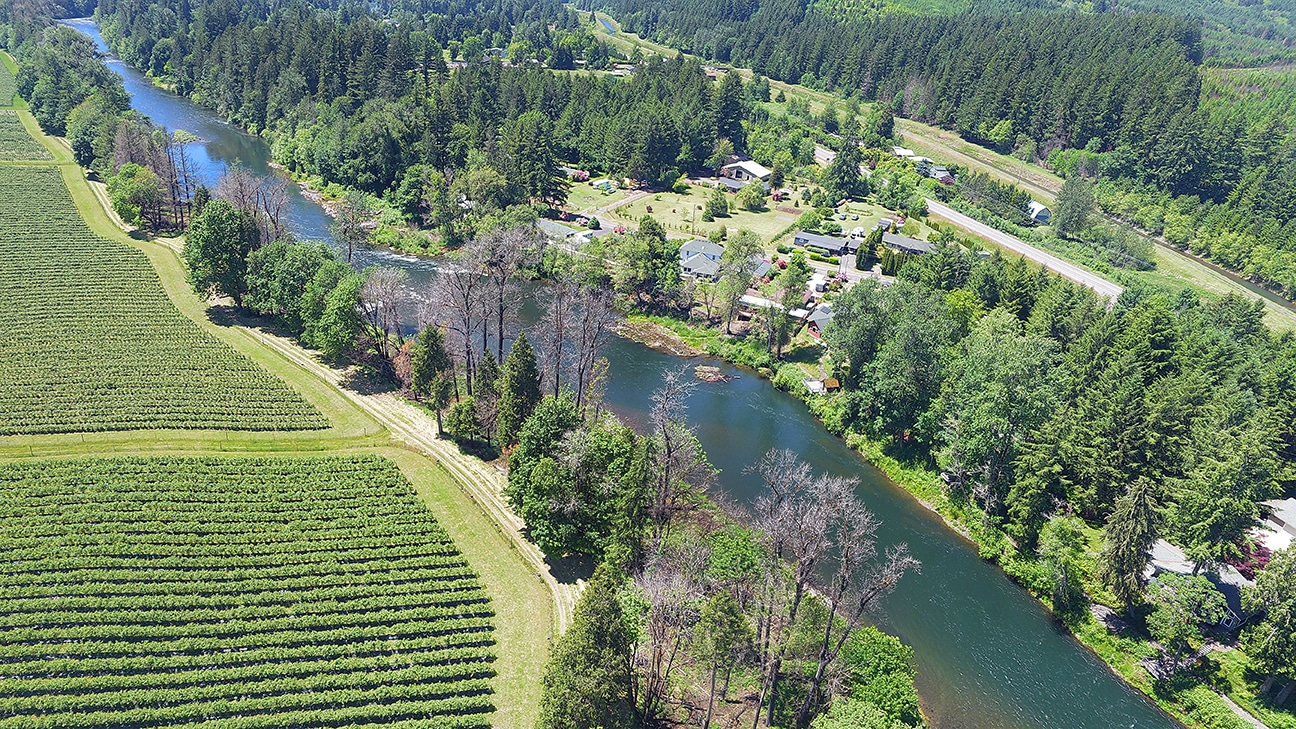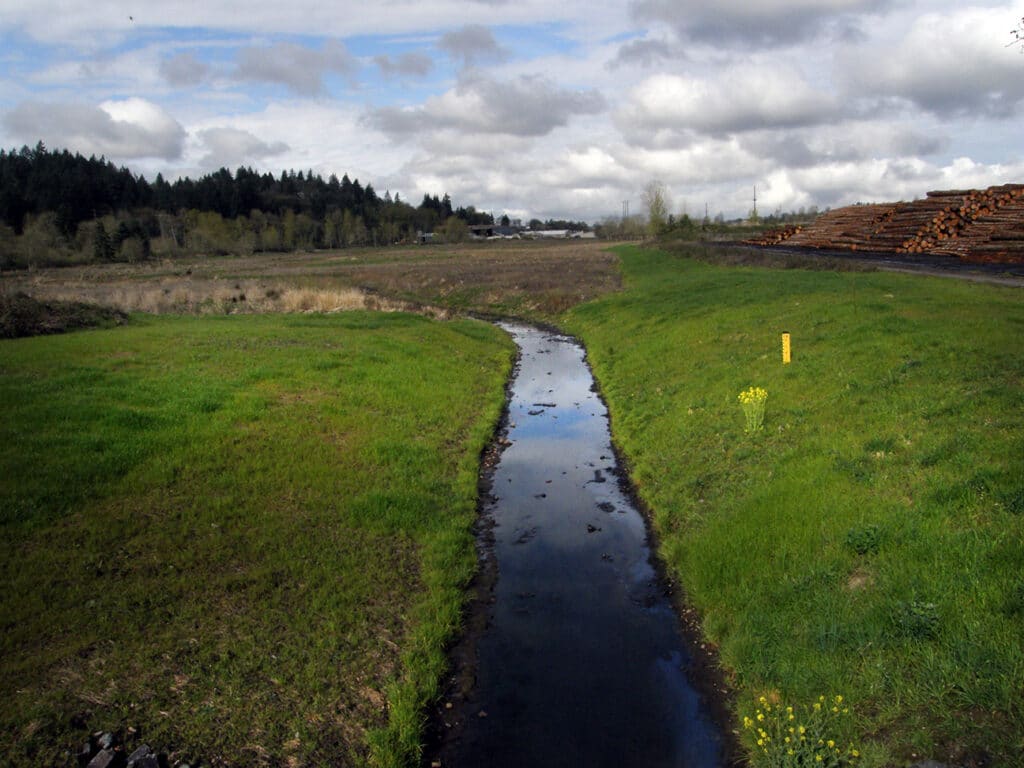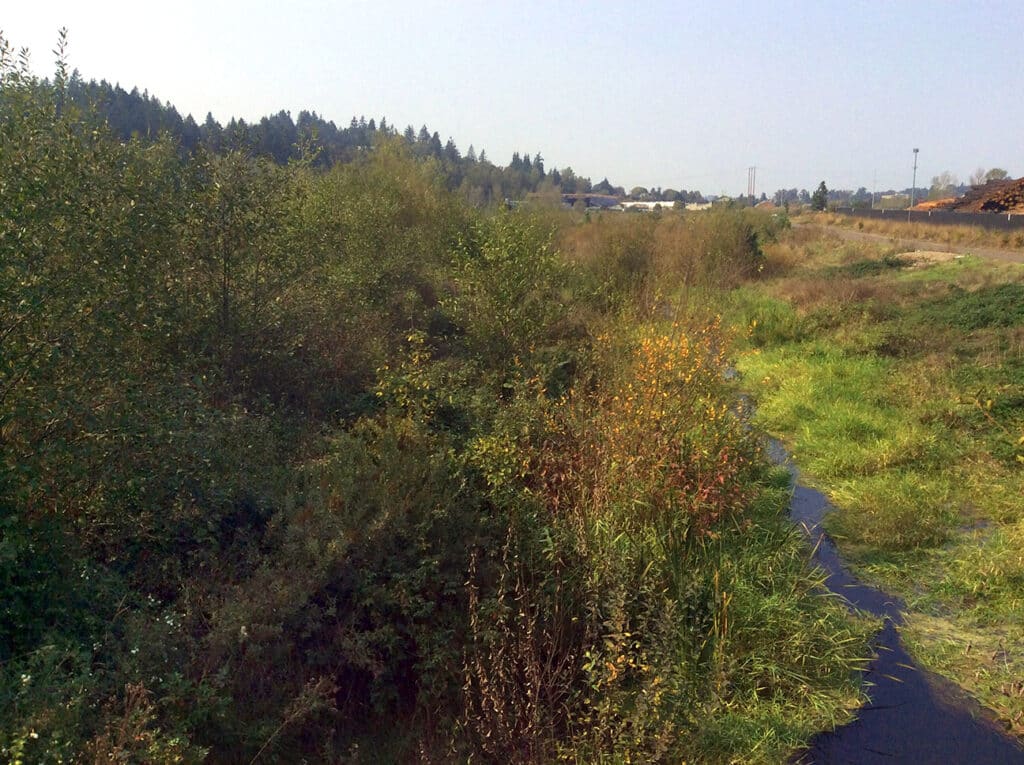Streamside Restoration Continues in McKenzie after Wildfire
July 21, 2021
The McKenzie River has a reputation to uphold. The 90-mile tributary of the Willamette is known for redside rainbows and providing some of the highest quality drinking water in Oregon. In effort to protect all it offers, The Freshwater Trust has worked with local small businesses, watershed councils, and the Metropolitan Wastewater Management Commission (MWMC) to restore streamsides with native vegetation.
Efforts began eight years ago with a restoration pilot program, spurred by the MWMC. The wastewater commission responsible for the cities of Eugene and Springfield needed to weigh options to offset a potential temperature exceedance from discharging warm, treated wastewater into an already warming river.
“This is also what prompted our work with the cities of Medford and Ashland,” said Olivia Duren, TFT environmental quality program manager. “To stay in compliance with the Clean Water Act, these cities must come up with an option that is defensible, lasting and affordable for their ratepayers. Restoration offers all of that. Plus, replanted forests provide benefits like filtering runoff and creating wildlife habitat that a mechanical solution would not.”
Beginning in 2013, TFT worked with the MWMC and the McKenzie Watershed Council to plant pilot projects identified through prioritization analysis as areas where improvements would have the most impact. By late 2021, five sites spanning 10 acres featured new, young black cottonwood, alder, dogwood, western redcedar and more. Additional projects are planned for 2022, including restoration of riparian forests burned by the 2020 Holiday Farm Fire.

Riparian project planted in early 2021 in area along McKenzie River burned by the Holiday Farm Fire in fall 2020. New trees are replacing the fire-killed tree canopy (center foreground). Riparian forests are the last barrier before sediment, excess nutrients, and pollutants enter this drinking water source.
Summers are spent focusing on maintenance at the existing projects. Weeds are removed to help the native plants thrive and plants are protected from local wildlife browse. At the end of each growing season, projects are monitored to measure performance against rigorous standards that reflect ecological health and document the compliance offsets.
“When plants go in the ground, they’re only 6 inches tall,” said Duren. “This year, many trees at our older projects were 25 feet and taller – and the seed they have produced is contributing to additional trees growing in and around the project area, too. What’s more, these trees attract bird nests and other wildlife to the site.”
“Bringing that resiliency back to the watershed gives me a lot of joy.”


Photo points show progress at the Mill Race riparian revegetation site in Springfield, Oregon. First photo: pre-project. Second photo: Eight years after planting on the left bank. (The right bank was not part of the project.)
The set of pilot projects are the foundation for what will hopefully soon become a long-term and extensive water quality trading program with the MWMC. If momentum continues and the program is approved by early 2022, it will direct millions of dollars in additional funding to restoration and local jobs throughout the McKenzie, Coast Fork Willamette, and Middle Fork Willamette subbasins of the Willamette watershed.
Rather than serve as the implementers of the projects, TFT will facilitate the program using its models to assess best project areas, track the credits that are generated from the program to keep the MWMC in compliance, and manage finances. Local groups, such as the McKenzie Watershed Council, will reach out to landowners and oversee the projects on the ground.
“This is similar to how we see the future of many of our programs – where we can play some of the roles, but not all the roles,” said Duren.
“Collaboration is how we, as a restoration industry, advance the scale and impact of our work.”
“Local restoration experts bring deep experience in their home watersheds; they know the landowners and what the rivers need. Collaboration lets organizations play to their strengths – and it will be essential to making our rivers resilient to the challenges ahead,” said Duren.
#McKenzie River #MWMC #riparian restoration #water quality trading
